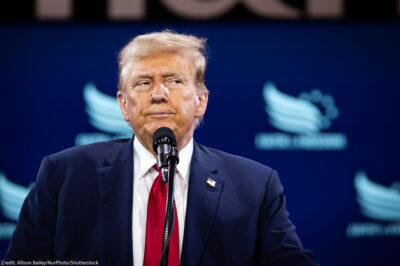Maybe it's different where you're from, but in West Virginia, the just-past general election cycle and the one before it were noted for concerted efforts by out-of-state corporate behemoths to purchase seats on the State Supreme Court and in the Attorney General's office. Call me bitter, but when your state's judicial system becomes the basis for a John Grisham novel, the time has come to take action.
During the 2004 elections, Don Blankenship, the CEO of giant coal producer Massey Energy, decided to get involved in a State Supreme Court race. This coal baron had a big case coming before the court and knew he needed a more favorable vote count. So he started his own "issue advocacy organization" called "And For the Sake of the Kids." Due to his group's tax classification, he did not have to disclose the source of its funding: close to $3 million of his own money in a blatant effort to buy a seat on the West Virginia State Supreme Court. The effort paid off because, by the time it was revealed that Blankenship was the person funding the highly negative television ads, radio spots, and direct mailings, the damage was done and his candidate had won. When that big case came around, turned out the Massey energy had made a smart investment: The justice he helped elect provided the crucial vote in a 3-2 decision. (Coincidently, that justice's refusal to recuse himself from that case has led to the United States Supreme Court getting involved. The high court has agreed to hear the failure to recuse case next spring.)
Following this travesty, the West Virginia Legislature passed laws requiring non-profit issue advocacy organizations (commonly known as 527's) who involve themselves in election activities to report the source of individual contributions $1,000 and up after spending $5,000. The legislature saw fit to include requirements for organizations that run ads 30 days before a primary and 60 days before a general on behalf of a clearly identified candidate. (This means if you run election ads that assail one candidate while not explicitly advocating on behalf of another, you still have to make information to voters available as to where the funding is coming from.) This is not unreasonable and should be viewed as compatible with First Amendment protections. No one is saying you cannot say what you want, but voters need these disclosures so they can make more informed decisions as to the legitimacy of organizations out to influence elections.
Big corporations seeking to buy elections in our state saw the writing on the wall and acted accordingly. In 2007, the self-styled Center for Individual Freedom, with the assistance of Citizens Against Lawsuit Abuse, got a federal judge to stifle the Legislature's 2005 law, citing it was vague enough to conflict with First Amendment protections. The legislature responded accordingly during a heated special session of the legislature with a modified bill that the Governor signed. The federal judge lifted his previous injunction and let the new disclosure law stand.
But that didn't dissuade the likes of big corporations from crying "free speech" and fighting tooth-and-nail to hide the funding of their electioneering efforts from the voting public. After the original judge lifted his injunction, West Virginians for Life, in concert with the conspicuously well-funded Center for Individual Freedom picked another federal judge and managed to get an injunction ordered the day before early voting started. This resulted in the U.S. and West Virginia Chambers of Commerce dumping close to $700,000 in the final days leading up to November 4th in an attempt to purchase the Attorney General's race. Because the chambers label themselves "issue advocacy organizations," they got away with keeping their financers secret. In reality, they are out to influence elections and should be held to the same standards as everyone else.
If Big Tobacco happens to be the major contributor of say, the "Basket of Puppies Foundation," and that "issue advocacy organization" happens to dump hundreds of thousands of dollars or even more toward influencing a particular election, then shouldn't the citizens affected by their electioneering be entitled to know where the money is coming from?
We demand transparency from government, but look the other way when organizations seek to influence government through careful navigation of electioneering and tax code loopholes. I hope the ACLU will revisit this issue and seriously consider a stronger statement in support of campaign disclosure laws. Buying an election is not free speech, and the calculated character assassination of candidates for public office should not qualify as "issue advocacy." Democracy has the right to protect itself from those who feel individual rights are an impediment to supreme government power.
Author’s Note: I realize that the phrase "Basket of Puppies" could be common in this and other contexts. I do not claim sole ownership of it. —S.D.



